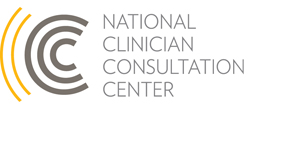National HIV Testing Day 2017: Test Your Way. Do It Today!
HIV Testing Is the First Step to Care
National HIV Testing Day (NHTD) is an annual campaign encouraging people of all ages to get tested for HIV and know their status. In the United States, an estimated 1.1 million people are living with HIV, and 1 in 7 of them is unaware of their diagnosis (CDC). Testing is the first step in helping previously undiagnosed patients receive life-enhancing treatment and prevent HIV transmission — it is the best way to understand if your patients should be linked to further HIV care.
The current recommendations for HIV testing in the U.S. indicate opt-out testing for all patients at least once in their lifetimes:
- As part of regular medical care, HIV screening for all persons aged 15 – 65 (US Preventive Services Task Force recommendation) or age 13 – 64 (CDC recommendation). In addition, younger adolescents and older adults outside of the recommended age range should be screened based on risk (USPSTF).
- Anyone presenting for STI evaluation and treatment should be screened for HIV (CDC).
- Screening for all pregnant women, “including those who present in labor who are untested and whose HIV status is unknown” (USPSTF).
The CDC recommends that HIV screening tests be administered on an “Opt-out” vs. “Opt-in” basis. “Opt-out” consent refers to general informed consent for medical care notifying the patient that an HIV test will be performed unless the patient declines, and should be considered adequate informed consent for HIV testing. Routine screening does not require pretest counseling or separate written consent from the patient in most states as had been the practice for “Opt-in” testing. For the latest comprehensive CDC recommendations on HIV testing, see the CDC ‘s Revised Recommendations for HIV Testing of Adults, Adolescents, and Pregnant Women in Health-Care Settings.
We Can Help You Put Testing Into Practice
Our dedicated multidisciplinary team can support you by providing clinical advice on a variety of testing topics, such as routine testing, choosing appropriate HIV tests, deciphering unclear test results, and providing counseling and follow-up testing. To reach one of our consultants, call our HIV/AIDS Management consultation line or submit a non-urgent case online through our electronic Clinician Consultation Service (e-CCS). For perinatal testing questions, please call our 24-hour Perinatal HIV/AIDS hotline. To discuss HIV testing as a part of pre-exposure prophylaxis (PrEP) services, call our Pre-Exposure Prophylaxis consultation line.
To learn more about National HIV Testing Day, visit the campaign page here.
 University of California, San Francisco |
University of California, San Francisco |
